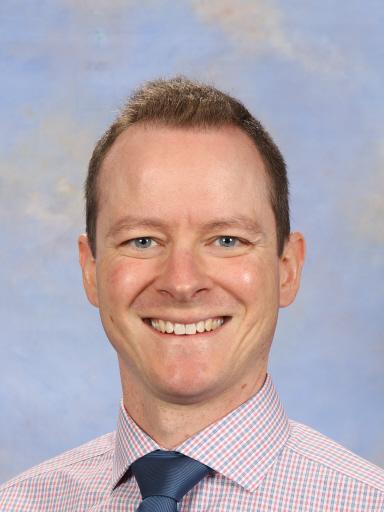COLLEGE CHAPLAIN

The End of Sickness
If this pandemic has taught us anything it is that we are at the mercy of our health. Ideally, we should already know that we are at the mercy of our health, but before this pandemic, we probably took our health for granted. When we thought about being healthy before corona diet, exercise, perhaps even a healthy tan for summer would come to mind. Our health was not about wiping down surfaces before we touched them, sanitising our hands or masking our face. These were not our normal healthy habits but now they are the air we breathe. We are much more acutely aware of how quickly our health can be taken away and replaced with illness. Life-threatening illness.
We take pride and comfort in our health and when we are sick we can feel shame perhaps even fear and desperation. I’m not sure whether you’ve had an acute illness or injury before, perhaps you have an ongoing health condition with which that you are living. Whether it’s a cold, cardiac arrest or chronic condition, we’ve probably all felt that particular low point in an illness where we think, ‘I can’t be sick anymore. I need help’.
Thankfully, in many instances, we can be helped back to health, but hitting that helpless point and admitting it is hard because it means admitting: ‘I am not well. I am sick’. That’s how we talk about sickness and health, defining ourselves by being one or the other. ‘I am depressed.’ ‘I am diabetic.’ ‘I am paralysed.’
We speak like this about our sickness and our health, but it is not a healthy way to think or speak, because it is not true. You are not defined by your diagnosis. You aren’t your sickness, you aren’t your health. Even though we have seen recently how powerful our health is to our existence, it does not define us. Not according to God anyway. This term in Chapel, we are going to be thinking about being in sickness and in health, but we will see that being in God’s family is what truly defines Christians. Being a child of God, having a Gospel identity is what helps Christians face not just the suffering of sickness, but all kinds of suffering.
For in the Gospel, Christians have victory over sin, death and the devil. This victory is achieved for us through Christ’s death and resurrection, even in spite of our own sinful rebellion. Because of the Gospel Christians conclude that God loves us more than we could ever imagine. When Christians experience illness or any other dark times and perhaps feel as though God doesn’t care, they must come back to the fact that God did not even spare his own Son in his pursuit to bring us back into his family. As harrowing as mental or physical health battles can be, they are not at the core of the Christian’s identity; at their core Christians are beloved children of God.
Christians need to keep telling themselves this truth. It’s what the Apostle John writes in his first letter, ’See what great love the Father has lavished on us, that we should be called children of God! And that is what we are!’ (1 John 3:1). Not only do Christians not define themselves by their sickness, they also know their sickness will end, for it will be taken away.
We began our series at the end in Revelation 21, because it is the assured end of sickness that helps Christians endure sickness now. In Revelation 21 the end of history is being described and it is like an eternal family reunion. The repeated words in that passage are ‘dwell’ and ‘with’. ‘God’s dwelling place is with his people…He will dwell with them…They will be his people and God himself will be with them and be their God.’ This is where Christians are heading—to be with God and if you are welcomed into the presence of God, then that is only a good thing, a place where no bad thing can be because God is good.
That’s why verse 4 says that ‘He will wipe every tear from their eyes. There will be no more death, or mourning or crying or pain, for the old order of things has passed away’. The old order of things has passed away. Sickness will end not merely because some sicknesses end because we recover or die from them, rather they end because God will have brought the very concept of sickness to an end. Being sick cannot define us because one-day sickness will be no more.
This is the hope that a Gospel identity brings, yet when we face a tummy ache, a tumour or a terminal illness we certainly can feel hopeless. Christian or not, the pain of any kind of sickness is a real feeling that we cannot deny and it can leave us feeling hopeless. But the hopelessness of that pain is in the ‘but’. Chris Cipollone writes of this idea in his excellent book, ‘Down, Not Out’:
‘If I am sick or suffering as a Christian and I say: “The Gospel is my hope, but I feel hopeless”, there is pain in that “but”. By saying “but I feel hopeless” I am dismissing the first part of the sentence—“The Gospel is my hope”. In other words, my feelings of hopelessness win out over the hope that the Gospel provides. Now, what if I say, “The Gospel provides hope and I feel hopeless”? This changes things. Now I can feel hopeless and the hope of the Gospel can still be true. The sun can be shining and I can feel lousy. My lousiness does not stop the sun from shining. In the same way, the hopelessness we can feel does not have the power to stop the hope we have. God’s Gospel is bigger than our feelings about it.’
Paul writes in Romans 5 about the power of the Gospel and the hope it brings to the Christian even in the face of suffering: ‘Hope does not put us to shame, because God’s love has been poured into our hearts through the Holy Spirit, who has been given to us’ (Romans 5:5). There is no shame in feeling the hopelessness of sickness if you know that both your feelings and your sickness are temporary and changeable, while the hope of the Gospel remains eternal and secure.
There is much more to say about the origins of sickness, living with sickness, caring for the sick, and sickness and our Spirit. We will get to all of those things and we will do it by talking to people who have much more profound things to say about it than me. This term in Chapel we will speak with local Christian doctors who each bring unique and informed perspectives and experiences to sickness. But I want you to know that as much more as there might be to say, the hope of the Gospel is the answer and despite how we might feel, there are no buts about it.
Gareth Tyndall | College Chaplain

